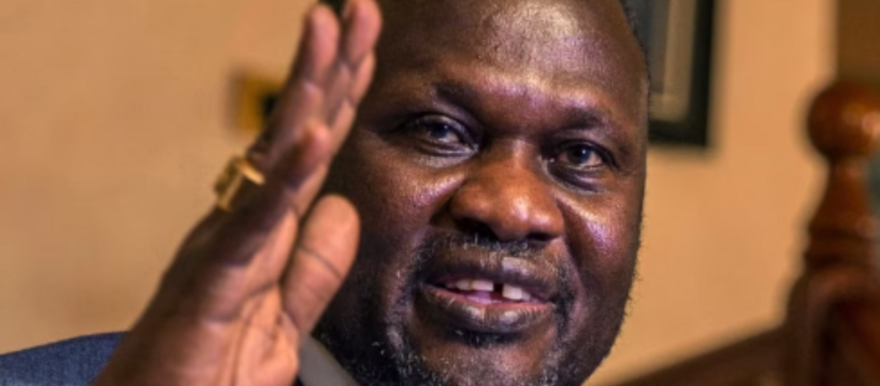First Vice President Dr. Riek Machar Teny has stated that South Sudan is losing a lot of investors because it has not been able to regulate the usage of land.
He was speaking at the commencement of a two-day consultative workshop aimed at reviewing the Local Government Act and Land Act organized by the International Organization for Migration (IOM) at Pyramid Hotel in Juba on Tuesday.
The workshop is also aimed at the enactment of the settlement and registration law.
Dr. Machar said regulating land use in South Sudan is vital especially where there is always conflict between farmers and pastoralists.
According to the first vice president, South Sudan is losing a lot of investors due to the country’s failure to regulate the usage of land and failure to ensure that investors do not take long to acquire land.
“Land is very important whether you are a farmer using it for agriculture or you a pastoralist, or even for other uses,” he said. “We (South Sudan) are now losing investors because we are unable to regulate and operate the land so that the investor can come and in less than two days, be able to get land for appropriate use.”
Machar further noted that since 2005, the government’s failure to address the conflict between pastoralists and farmers clearly shows that it is not being relevant to the situation affecting the people in the country. He said that it has been difficult for the government to drive pastoralists who have moved to farming areas back to their places of origin.
“Yesterday I did not go to the office because my house was invaded by a group of land users, pastoralists, and fishermen who said that the policy we are using now in the government on pastoralists is the wrong one and needs to be worked on,” Machar revealed. “Since 2005, the government has been struggling to move pastoralists from areas or lands that are occupied by people who only do farming or agriculture. So, they have been pressing on me that we should recognize these policies.”
He noted that to address these challenges, the government has started by passing the land policy through the cabinet.
For his part, Justice Minster Ruben Madol said the Local Government Act and Land Act were enacted before the independence of South Sudan and thus it is important to review them to conform to the 2018 peace agreement.
He added that the purpose of the workshop was to bring together stakeholders to brainstorm on how the two laws can be adjusted to suit the current situation.
“Today, the IOM has come up with a concept note to focus our minds to review the Local Government Act and Land Act and they have been consulting the Ministry of Justice on this. That is why we felt we needed to come together to have this consultation,” Madol said. “We also need to determine how this process can be implemented, who is to lead, and what could be the roles of the respective institutions.”
Meanwhile, UNMISS’ Rule of Law Director Milbert Shin said it is important to harmonize customary and statutory laws with the Transitional Constitution and to strengthen the linkages between local, state, and national institutions.
“I welcome, in this regard, the emphasis of this workshop on local government and customary authorities and the key role they play in land management and administration, oversight, and dispute resolution,” she said. “It is not only crucial to harmonize customary and statutory laws, and both with the Transitional Constitution, but also to strengthen the linkages between local, state, and national institutions.”
According to Shin, increasing legal certainty on housing, land, and property, clarifying roles and responsibilities of relevant institutions, and ensuring adequate oversight over executive decisions on housing, land, and property will significantly strengthen the rule of law and increase access to justice, reduce disputes, and enhance social cohesion”
“Let me conclude by stressing that housing, land, and property is a cornerstone of peace and stability and economic development,” Shin added. “Within our existing resources, the United Nations is committed to continue supporting South Sudan in these efforts.”




